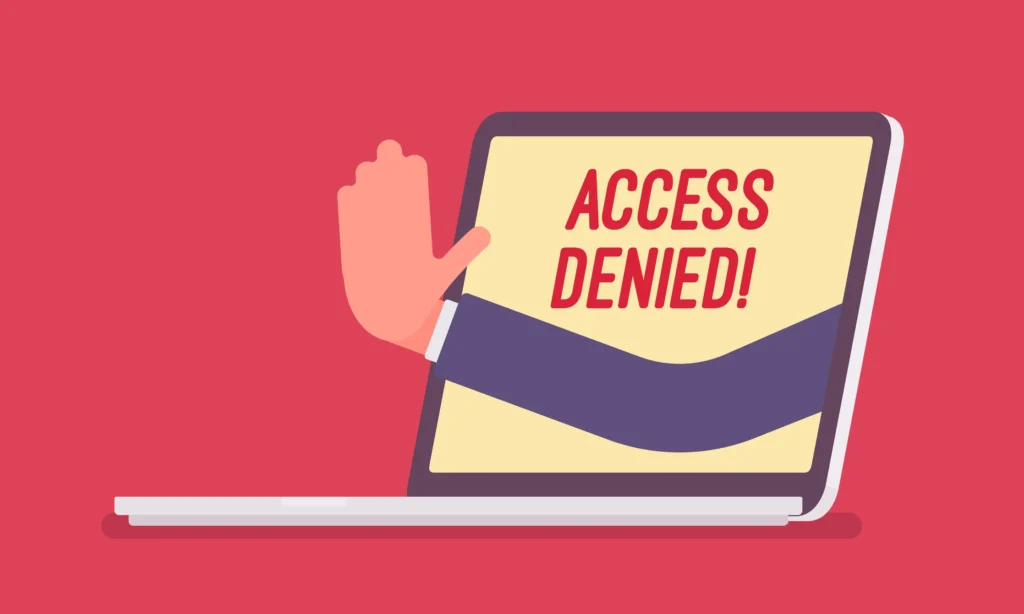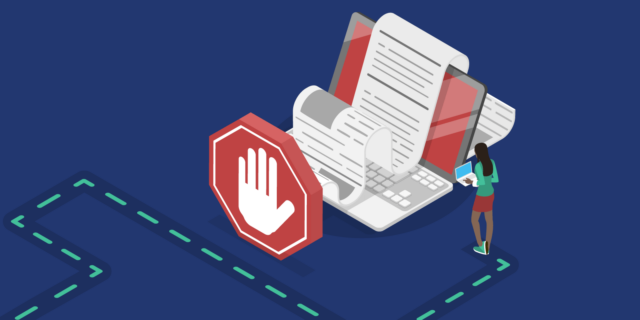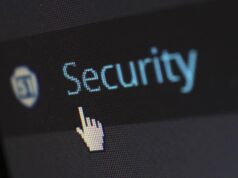The internet is a powerful tool for people living under corrupt governments and it’s often used to circumvent government censorship policies. As a result, repressive governments have taken different actions to attempt to control internet activity. Some countries block all access to the internet entirely, while others limit access to certain sites or regulate individual activities and behaviors. This list of countries with the strictest internet censorship policies is based on the number of reported instances of government censorship of the internet in 2013.
Censorship has become an ever more pressing issue as the number of countries using internet filters continues to increase. The good news is that there is an increasing number of organizations that are putting pressure on countries that ban certain types of content on the internet.
The internet has become an important tool for business and everyday life in every part of the world. It has made global communication and trade easier than ever, and it has become a common way for people to get information. Good news is that it is also a tool for freedom of information, with countries around the world defending their right to create and operate an open internet at all costs.
The average internet user can no longer imagine life without the internet. Once you breathe in the internet, it becomes your oxygen. Without oxygen, life on this earth is unthinkable. With the internet, you can quickly get information in any corner of the world.
This instant access to the world is useful in several areas of life. It enables learning, dissemination of knowledge and information, and sharing of ideas with others. But at the same time, it can be crucial to the spread of activism and an anti-state agenda. When this fear is present, it becomes a threat to countries and authorities.
This fear allows many countries to censor websites that violate their country or the law. The internet is censored in many parts of the world, including developed countries such as China and some Gulf states. Some countries are lenient with regard to Internet censorship, while others are very strict on this point.
Social websites like Facebook and Twitter are banned in some Arab countries. The Internet is not only censored in China, as many of us know, but also in many other countries where the Internet is partially available. What are these countries?
Countries with strict Internet censorship laws
Let’s take a look at the countries where the most popular social networks and search engines are blocked. If you study this topic thoroughly, you will find that more than 90% of the countries in the world use sensors of one type or another. But here we’ll talk about the big names denying access to Gaint websites.
Kingdom of Saudi Arabia (KSA)
Blocked websites: adult websites, gambling, anti-state, anti-Islam
Reasons for censoring foreign websites: To control the unrest in the country and to safeguard the religion as much as possible.
The Kingdom of Saudi Arabia (KSA) is very careful about anti-state and anti-religious content. In the KSA, all foreign websites are checked by a government content filter. The filter removes anti-Islamic and anti-state pages.
In most cases, Saudi Arabia restricts access to inappropriate websites. Restrictions were also placed on sites that included gambling, adult content, anti-religious content, sites that focused on the kingdom, and many others. They also block websites that cause unrest in the country.
COA is stricter when it comes to the national interest. They have blocked Wikipedia in the past. It is also common to restrict social media apps like Viber, Twitter, WhatsApp and Facebook. All these social networking sites are inaccessible in the country.

China
Blocked Websites : YouTube, Twitter, Facebook, Google, Wikipedia, etc.
Reasons for censoring foreign websites: Limit the dissemination of sensitive topics.
China is a major consumer of Internet-related services. But at the same time they applied the most extensive censorship measures to the most important web services. This censorship starts at Google and continues at Wikipedia.
The technological problems between the United States and China are not hidden from anyone. To prevent any kind of misleading content, the country takes blocking of search engines, video sharing sites, social media and other information sharing sites very seriously.
Iran
Blocked Websites : Websites for adults, gambling, LGBT websites
Reasons for censoring foreign websites: Religious purposes and security considerations
Pornography, gambling, websites promoting LGBT people and all websites criticizing the government are strictly prohibited in the country. Most foreign sites, such as YouTube, Facebook and Twitter, are blocked for various reasons. Other deceptive sites, such as gambling sites and adult sites, are also restricted in Iran.
To prevent unrest in the country, Iranian authorities have also blocked access to many news websites, especially those in the east. Every citizen is closely monitored, and if someone tries to access a blocked site, they get a warning message.
North Korea
Blocked Websites : Most anti-government sites
Reasons for censoring foreign websites: Security issues
In North Korea, censoring websites is not a common practice. They’re out. The Internet is not accessible to the public in North Korea. Only government officials are allowed to use the Internet.
There are smartphone users, but they don’t have access to the intranet as we know it. They must use their own intranet, known as Kwangmyong. You can use this service internally to connect universities, libraries and educational institutions.
Cuba
Blocked Websites : Skype
Reasons for censoring foreign websites: Political reasons
Internet censorship is not very high in Cuba, but the price of internet is very high. Unlike in the past, Cuba now has full access to the Internet for public users, but the subscription price is still high in relation to the income of the average citizen.
For certain political reasons, news sites and bloggers focus on human rights issues in Cuba and political issues are narrowly focused. There is no serious reason to censor the Internet in Cuba. So if you want to connect to a forbidden site, you can easily do so with a third-party tool, such as a VPN.
Other countries
The countries mentioned above are not the only ones where the internet is censored. Almost all countries impose restrictions on access to the Internet. In other countries, these sensors are generally used for noble reasons, but at the same time they are a nuisance.
For example, child pornography is banned in the UK and Sweden, which is a very good move on their part. At the same time, hate speech is prohibited in Germany.
What to do in such situations?
If you’re tech savvy, it’s not that hard to bypass these sensors. You can easily get around these limitations by using a third-party tool. Banning social networking sites is not part of democracy and violates freedom of expression.
However, in some cases it is justified to restrict access to the Internet. If your country has blocked access to a particular website and you access that website by other means, that is an illegal act.
But if your intentions are not evil, you will not be punished. Before deciding to visit a censored website, it is advisable to check the laws of your country regarding this specific action. If allowed, continue, otherwise stop visiting the censored sites.
Internet censorship may be getting worse in remote areas of the world, but it’s still a big issue in many developed countries. Western nations are not immune to the problem, either: the U.K., for example, has a policy of blocking websites for “extremist” or “hate” speech. One of the most common types of websites to be blocked is social media.. Read more about internet censorship pros and cons and let us know what you think.{“@context”:”https://schema.org”,”@type”:”FAQPage”,”mainEntity”:[{“@type”:”Question”,”name”:”Which country has the least strict Internet laws?”,”acceptedAnswer”:{“@type”:”Answer”,”text”:” The United States has the least strict Internet laws.”}},{“@type”:”Question”,”name”:”Which countries have censorship?”,”acceptedAnswer”:{“@type”:”Answer”,”text”:” China, North Korea, Iran, Syria, Saudi Arabia, Vietnam, Myanmar, Cuba, Laos, Sudan, Uzbekistan, Turkmenistan, and Vietnam.”}},{“@type”:”Question”,”name”:”What countries limit Internet?”,”acceptedAnswer”:{“@type”:”Answer”,”text”:” The United States, China, North Korea, Iran and Syria.”}}]}
Frequently Asked Questions
Which country has the least strict Internet laws?
The United States has the least strict Internet laws.
Which countries have censorship?
China, North Korea, Iran, Syria, Saudi Arabia, Vietnam, Myanmar, Cuba, Laos, Sudan, Uzbekistan, Turkmenistan, and Vietnam.
What countries limit Internet?
The United States, China, North Korea, Iran and Syria.
Related Tags:
internet censorship by countryleast censored countriesinternet censorship pros and consmost censored countriescountries with most internet freedomcountries with the strongest degree of internet censorship,People also search for,Feedback,Privacy settings,How Search works,countries with the strongest degree of internet censorship,internet censorship by country,what countries have no internet censorship,least censored countries,internet censorship pros and cons,countries with least internet restrictions,most censored countries,countries with most internet freedom







